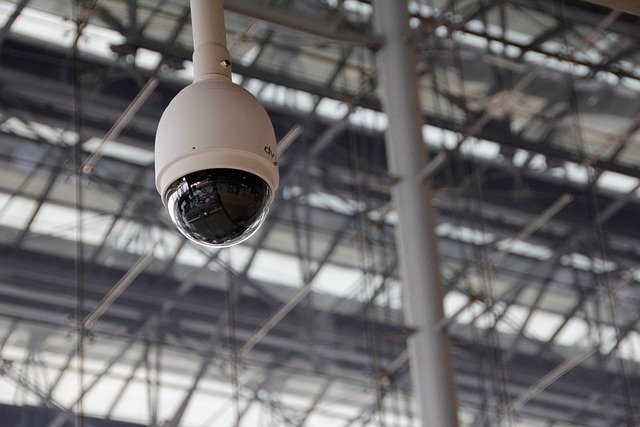What to Know About Security Jobs: A General Overview
Security jobs are a popular option for individuals looking for stable roles with clear responsibilities. While requirements and tasks may vary, many people explore this field to gain experience in safety protocols or to work in environments that value vigilance. Learn what to expect in security roles. Discover more in this article.

What types of security jobs are available?
The security industry encompasses a wide range of positions, each with its own set of responsibilities and requirements. Some common types of security jobs include:
-
Security Guards: These professionals are often the first line of defense in protecting property and people. They may work in retail stores, office buildings, or residential complexes, monitoring for suspicious activity and enforcing rules.
-
Loss Prevention Specialists: Typically employed by retail establishments, these individuals focus on preventing theft and reducing inventory shrinkage.
-
Cybersecurity Analysts: With the increasing importance of digital security, these professionals protect computer networks and systems from cyber threats.
-
Private Investigators: These individuals conduct investigations for private clients, businesses, or law firms, often dealing with issues such as fraud or missing persons.
-
Security Managers: Responsible for overseeing security operations and personnel, these roles involve developing and implementing security protocols and managing teams.
What are the typical responsibilities in security roles?
While specific duties can vary depending on the position and industry, many security jobs share common responsibilities:
-
Surveillance: Monitoring premises through physical patrols or using surveillance equipment to detect and prevent security breaches.
-
Access Control: Managing entry and exit points, checking credentials, and ensuring only authorized personnel enter restricted areas.
-
Emergency Response: Reacting quickly to security incidents, medical emergencies, or other unexpected situations.
-
Reporting: Documenting incidents, maintaining logs, and preparing detailed reports for management or law enforcement.
-
Customer Service: Interacting with the public, answering questions, and providing assistance when needed.
-
Risk Assessment: Identifying potential security vulnerabilities and recommending improvements to enhance safety measures.
What qualifications are needed for security jobs?
The qualifications required for security jobs can vary widely depending on the specific role and employer. However, some common requirements include:
-
Education: Many entry-level positions require a high school diploma or equivalent. Higher-level roles may require a bachelor’s degree in criminal justice, security management, or a related field.
-
Licensing: Many states require security guards to be licensed, which often involves completing a training program and passing a background check.
-
Physical Fitness: Some positions, particularly those involving active patrolling or potential confrontations, may have physical fitness requirements.
-
Communication Skills: Clear verbal and written communication is essential in most security roles.
-
Technical Skills: Familiarity with security systems, surveillance equipment, and computer software may be necessary, especially for more advanced positions.
-
Certifications: Industry-specific certifications, such as the Certified Protection Professional (CPP) or Certified Information Systems Security Professional (CISSP), can enhance job prospects and demonstrate expertise.
Are there safety jobs available with no experience?
Yes, there are entry-level security positions available for individuals with no prior experience in the field. These roles often provide on-the-job training and can serve as a stepping stone to more advanced positions. Some examples include:
-
Unarmed Security Guard: Many companies hire entry-level guards for positions in retail stores, office buildings, or residential complexes.
-
Event Security: Temporary positions at concerts, sporting events, or other large gatherings can provide valuable experience.
-
Parking Attendant: While not strictly a security role, these positions often involve monitoring parking areas and can lead to more traditional security jobs.
-
Loss Prevention Associate: Some retailers offer entry-level positions in their loss prevention departments, which can provide a foundation for a career in security.
-
Security Receptionist: Combining customer service with basic security duties, these roles can be an excellent introduction to the field.
What can you expect when working in security?
Working in security can be both rewarding and challenging. Here are some aspects to consider:
-
Shift Work: Many security positions involve non-traditional hours, including nights, weekends, and holidays.
-
Responsibility: Security professionals are entrusted with the safety of people and property, which can be both fulfilling and stressful.
-
Routine and Vigilance: While some days may be uneventful, maintaining constant alertness is crucial.
-
Career Advancement: The security field offers opportunities for growth, with many professionals advancing to supervisory or specialized roles.
-
Continuous Learning: As technology and security threats evolve, ongoing training and education are often required to stay current in the field.
-
Physical and Mental Demands: Depending on the role, security work can be physically demanding and may involve high-stress situations.
Security jobs offer a diverse range of opportunities for individuals seeking stable employment with clear responsibilities. From entry-level positions to advanced roles in cybersecurity or management, the field provides numerous paths for career growth and development. By understanding the types of positions available, typical responsibilities, and qualifications needed, you can better navigate your options and determine if a career in security aligns with your professional goals and interests.




